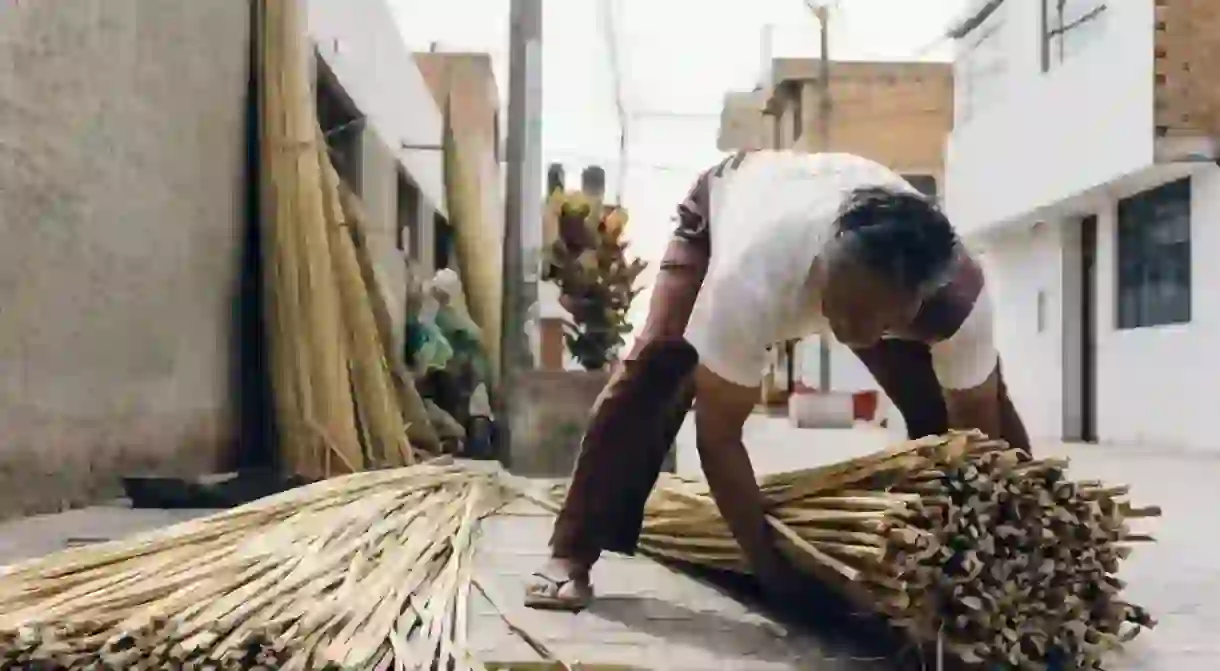Caballitos de Totora: What to Know About the 3,000-Year-Old Tradition Dying on the Shores of Huanchaco, Peru

For the last 3,000 years, fishers on the shores of Huanchaco, Peru, have worked just as they do today, riding their reed boats out into the Pacific Ocean each morning, oar in hand; but this 3,000-year-old tradition is now on the verge of disappearing for good. Countless generations have taken the plunge into the ocean waters around Huanchaco on their caballitos de totora, but with a fading traditional affinity, a younger generation is beginning to eschew the ancient tradition for more contemporary interests.
Huanchaco’s arid desert landscape gives way to the Pacific Ocean, just like every other beach town along Peru’s harsh coastline. There’s almost never any rain, and grey clouds hang over the little town most of the year; this, too, is just like every other beach town in Peru. But one thing you’ll notice that is different here are the reed boats called caballitos de totora that line Huanchaco’s beachfront. These reed boats aren’t just for decoration, but are the boats fishers outside of Trujillo have been using since time immemorial, and they are found nowhere else in Peru.

“These boats are our identity and have been for thousands of years,” said Armando Ucañan Gonzales, the son of alocalfisher. “They’re the reason tourists come to Huanchaco – not for the beach or the waves or the food – they come for the boats and the tradition. Without the boats, we’d be just like every other beach town in Peru.”

After working on a cruise ship for the past 15 years, Armando, now aged 45, is acutely aware of the importance of tourism to small beach towns fighting for tourists’ attention – especially in the crowded field of Peruvian tourism. Without the money and economic stimulus a steady diet of tourism brings, Huanchaco would be like so many other no-name towns along the Peruvian coastline, reduced to a beach town that might be glimpsed from the window of a passing bus.
Like any other generation, Huanchaco’s young people are not immune from the spreading of Western culture and its ideas, and neither are the 40- and 50-somethings, who want something different for themselves and their children.


Mia Spingola / © Culture Trip”The life of a fisherman is a hard life,” Armando says, looking over at his father, now 63, tying reeds together, like he’s been doing for 60 years. Armando’s father, Alfredo, looks like most fishers who’ve spent years at sea: worn, with leather hands and a face hardened by years exposed to sun and salt. While Armando is portly and appears to enjoy a more sedentary lifestyle, his father is strong and healthy.

“I don’t want my kids to become fishermen like my father,” he continued. “I’ll teach them the tradition. It’s in our blood. They’ll do it because it’s in our blood, but I don’t want my kids to do it professionally, only to know how to do it.”


If not handed down by him and his children, the tradition of the caballitos de totora will fade, reduced to tourist demonstrations, the vestiges of a once living, breathing cultural tradition. With it will go the connection to the past, to tradition, to Peru’s once-great coastal civilizations, and possibly Huanchaco’s recent tourist boom.


As you walk down the malecon in Huanchaco you’ll find caballitos de totora key chains, paintings and even miniature replicas made out of the same material that the boats are made of. You’ll find shirts with the reed boats emblazoned across the front, while all the time, along the beach of Huanchaco, old men are still paddling out to sea just as they have for centuries. How long before the memories of these great people, the descendants of the Chimu culture, are reduced to souvenirs, tourist demonstrations, and fond memories?

Before I left, Armando handed me a miniature reed boat made from some of his dad’s leftover materials. It was small and delicate, with the word “Huanchaco” scribbled across the top in pencil. “So that when you go back home to California, you’ll always remember us here, and our traditions.”

















